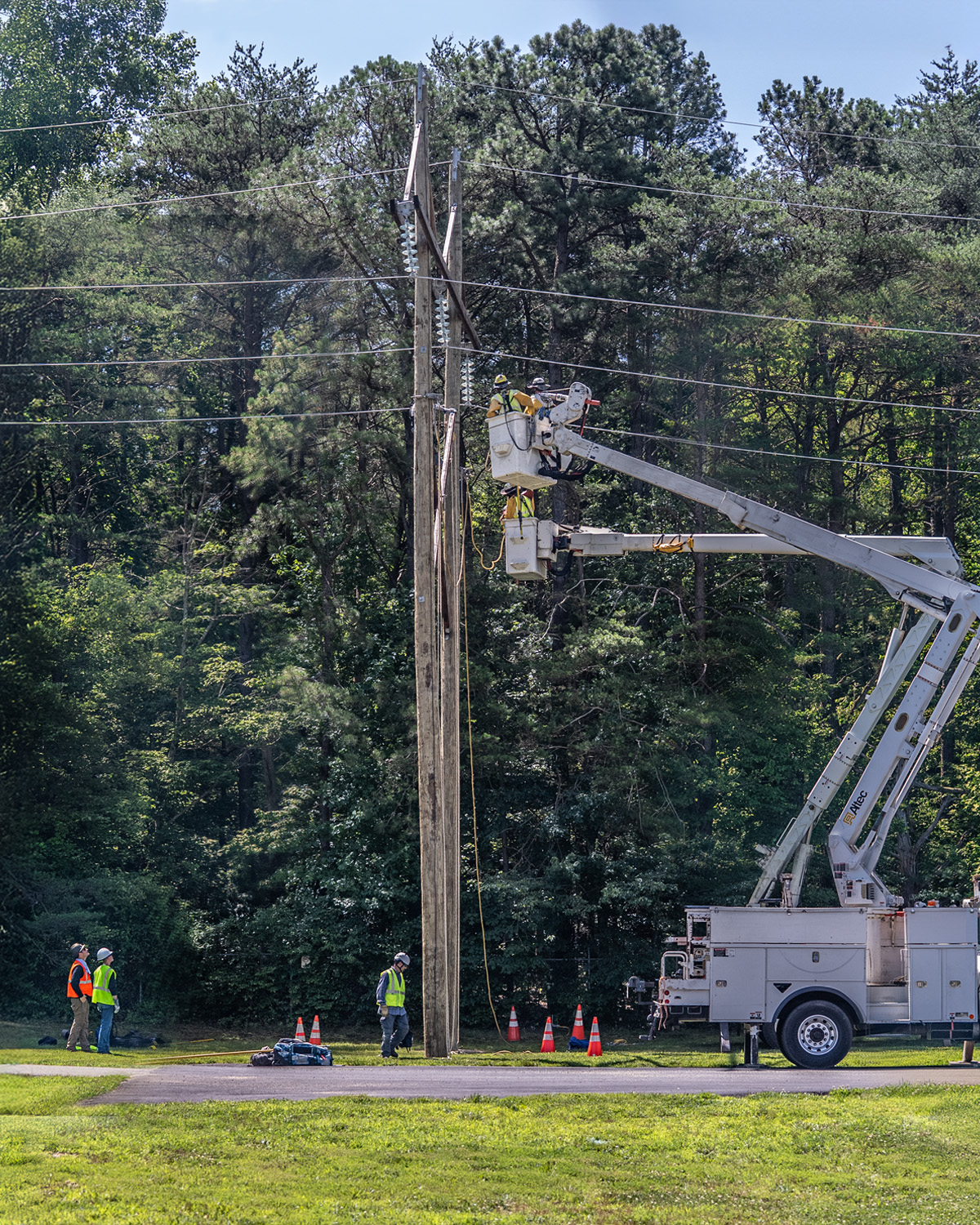If you step into a career as a lineworker (sometimes called a lineman or power-line technician) in the utility and grid sector, you’re not just getting a job. You’re entering the group of people who keep the lights on, the power flowing, and the infrastructure running. In the Mid-Atlantic (Maryland, Virginia, Pennsylvania, etc.), you could join an apprenticeship program with a union, a utility company or a contractor, and begin a real career path.
Earn While You Learn
Unlike many paths where you’re paying tuition first, in a lineman apprenticeship you often start earning from day one. You’ll be working on real crews, learning crafts like climbing poles, stringing conductors, working in substations or overhead/underground lines. Over time the skills stack, the responsibilities grow, and the pay follows.
A recent national survey shows the average apprentice lineman salary is about $48,171 per year or about $23.16/hour. Zippia Another source puts the “Apprentice Lineman/Groundman” average at about $63,887 annually (≈ $31/hour) in the U.S. as of 2025. Salary.com
Real Wages & Advancement
Here are some real world figures to give you an idea:
- In Maryland, the average apprentice lineman salary is listed at approx $57,196/year or $27.50/hour in one survey. Zippia
- That is 'base pay' - before overtime, per diem, and storm work (double time) - which will be added onto your paychecks.
- According to a “how much do linemen earn” article: entry-level (0-5 years) linemen make around $52,350/year on average nationwide. lineman24.com
- Again - base pay, you'll be making more money...
- A union scale example: in one jurisdiction, “Line Constructor / Lineman Apprentice” starts at percentages of the journeyman rate — e.g., 60% of $60.54/hour becomes about $36.32/hr at 1st period. ebe.org
So what this means: as you move through the apprenticeship levels, you’re earning more, gaining credentials, and positioning yourself to become a journeyman lineworker — which can lead into six-figure earnings (with overtime, per diem and storm work) and career stability.
What You’ll Be Doing
In a lineworker apprenticeship you’ll:
- Learn to climb poles, operate bucket trucks, and install or repair overhead and maybe underground power lines.
- Work under experienced journeymen and foremen.
- Get classroom training: safety, equipment, power systems, certifications.
- Be prepared for storm response, sometimes travel, sometimes long hours. One lineman posted:
“Our apprentices start out at about $30 an hour … The JLs I work with make close to 200k pre taxed …” Reddit
Why It’s a Powerful Opportunity in the Mid-Atlantic
- High demand: Aging infrastructure, grid modernization, renewables connection all mean more demand for lineworkers.
- Financial upside: Starting wages for apprentices are strong and the journey to journeyman adds benefits, overtime, per diems, etc.
- Career progression: Your skills scale — you can eventually become a lead lineman, foreman, or move into specialized utility roles (substation, transmission).
- No massive student debt: Instead of investing tens of thousands in college, you’re being paid while you learn, gaining credentials and moving toward stable income.
What to Ask & What to Prepare
- What is the starting hourly rate / salary for the apprenticeship in your district/local union?
- What is the progression schedule (year1, year2, etc.) and how long until you are “journeyman”?
- What are the physical demands, hazard risks, travel requirements (storm response, out-of-town work)?
- What certifications/licenses are required (CDL, climbing, rigging, etc.)?
- What benefits are offered (health, retirement, tool allowance, per diem)?
- Are there opportunities for advancement into higher pay or specialized roles?
Final Thoughts
If you’re ready for hard work, physical challenge, learning every day and stepping into a job that matters — a lineworker apprenticeship in the utility/grid world in the Mid-Atlantic could be one of the best routes out there. You’re entering a career where you make real impact, you earn while you learn, and you build toward a future with strong earning potential and meaningful work.
As one participant put it:
“Any dude that is mechanically inclined … I suggest everyone to get into line work. My base salary is 106k and make about 150k … Our apprentices start out at about $30 an hour…” Reddit
